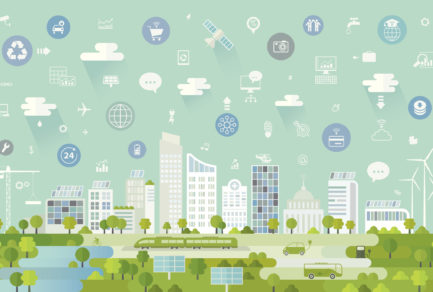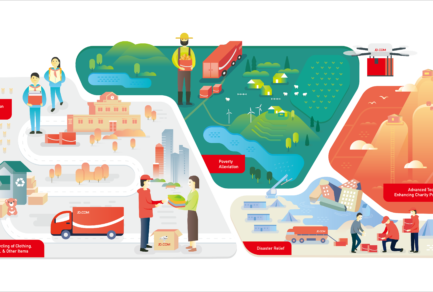Jun 9, 2017|
JD.com Announces Environmental Protection Initiatives
The meteoric rise of consumption in China has helped drive the country’s economic miracle – and improve the lives of hundreds of millions of people – but it has also presented serious environmental challenges. As part of its dedication to tackling these challenges for the benefit of future generations, this week JD.com announced a donation of RMB 10 million to support a series of environmental initiatives in cooperation with World Wide Fund for Nature (WWF) China.
“The protection of our natural environmental is one of the most serious challenges facing humanity,” said Shi Wang, president of WWF China Board and chairman of board of directors of China Vanke Co., Ltd. “Maintaining current levels of consumption would require the natural resources of 1.6 earths – so a greater commitment to conservation and sustainability are crucial to preserving our planet. JD.com has been active in embracing environmental solutions, and these initiatives in cooperation with WWF will encourage more companies and consumers to join the cause of environmental protection.”
“Giving back to society has always been core to JD.com’s mission, and over the years we have been committed to providing support to disaster relief, education, and environment protection,” said Richard Liu, Chairman and CEO of JD.com, “I am very excited to join forces with WWF, one of the biggest environment conservation organizations in the world, which will take our environmental protection efforts to the next level and further raise awareness of environmental issues to the general public in China.”
As a first step in its cooperation with WWF, JD.com will become the first Chinese e-commerce company to install large scale distributed photovoltaic (PV) power generation systems on warehouse rooftops. Covering a total of 1.5 million square meters, the project is expected to reduce the company’s annual carbon dioxide emissions by 150,000 tons – equivalent to planting 20 million trees or saving 60,000 tons of coal.
Reducing waste through smart packaging
Another environmental problem that has emerged alongside China’s consumption boom is the massive amount of packaging material that is discarded each year – a trend that continues to accelerate. A look at the numbers gives a clear picture of the challenge: in 2016, China led the world with over 31 billion packages delivered –– a more than 20-fold increase over the past 10 years.
To help alleviate this problem, JD along with nine major brands, including Lego, Nestle, Unilever, P&G, and Wyeth, recently announced the launch of the Green Stream Initiative to promote the use of sustainable, “greener” packaging materials throughout the supply chain.
Headed by JD Logistics, the Green Stream Initiative is the company’s largest environmental project and a major focus for the next three years. By 2020, JD expects to reduce the number of boxes used throughout the supply chain by 10 billion – the total number of all boxes used in China in all of 2015. By working with the brands, the company expects that 80% of packaging materials will be recyclable, with over 50% of plastic packages replaced by biodegradable material and 100% of logistics packaging materials to be composed of recyclable or reusable materials.
JD is continually looking to leverage technology to create efficient e-commerce solutions that have a positive impact on the environment. In June, the company began operating its first fleet of clean energy delivery trucks in Beijing, Shanghai and Chengdu – becoming the first domestic logistics player to employ large-scale “green” delivery vehicles. The over 100 new energy delivery trucks are expected to reduce JD.com’s annual carbon dioxide emissions by over 584 tons! And since deploying its electronic invoice system in 2013, JD.com has issued more than 500 million electronic invoices saving over 216 tons of paper.
JD has long been dedicated to becoming the most trustworthy smart supply chain partner for its clients. Looking ahead, the company is committed to increasing its cooperation with brand owners, logistics companies and packaging companies to encourage recyclable packaging and the use of bio-degradable materials.

 JD.com Launches White-Glove Delivery Service for High-End and Specialty Products
JD.com Launches White-Glove Delivery Service for High-End and Specialty Products



